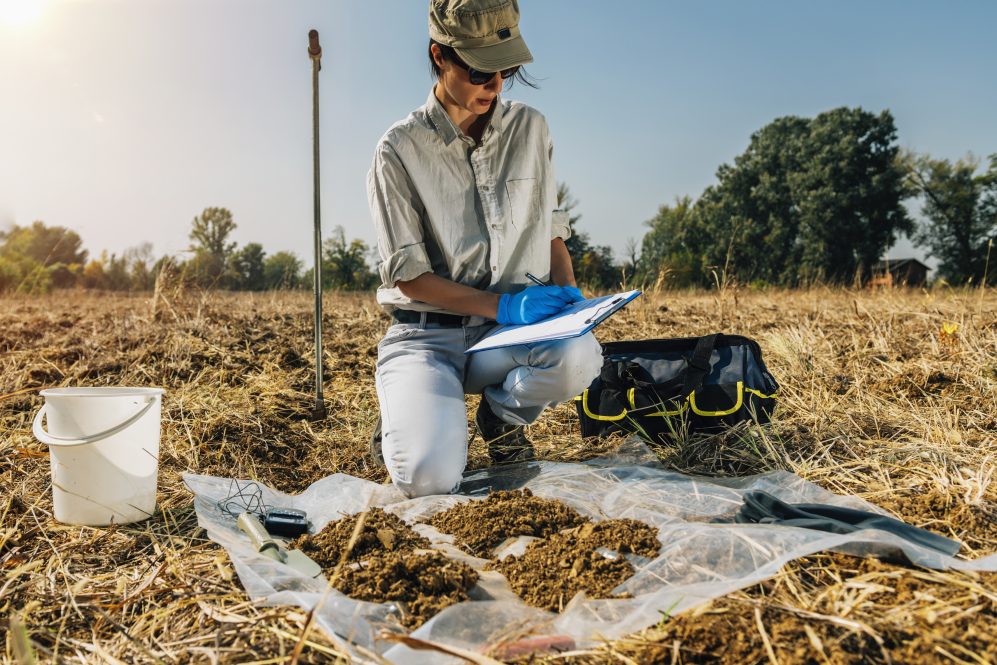Field stations and marine laboratories (FSMLs) serve as great drivers of research, monitoring, and learning about our world. However, FSMLs across the globe are facing major cutbacks and even closure due to COVID-19 pandemic-driven budget cuts. UConn’s Gene E. Likens and David L. Wagner, professors in the Department of Ecology and Evolutionary Biology, have written an editorial in Science outlining the importance of these vital “sentinels” while calling attention to the dangers we face if these global observatories are to be closed. They met with UConn Today to explain the issues. The conversation has been edited and condensed for clarity.
How has the pandemic impacted field research? What effect does this have for scientists and research overall?
Wagner: The pandemic has resulted in travel restrictions worldwide, from polar regions to the equator. The ramifications to both near- and long-term data collection have compromised research efforts, field courses, and the training experiences of undergrads, many graduate students, and postdocs, who often have limited windows for their studies. Many early career scientists have been disproportionately affected by the pandemic from two field seasons of canceled or curtailed research efforts. Few studies, except those deemed most essential, could continue, and these were often scaled back. 2020 and 2021 will be asterisk years for decades to come: for data sets, published studies, and in the resumes of many students and early career scientists.
Can you talk about the threats that field stations and marine laboratories (FSMLs) face?
Likens: FSMLs across the globe are financially dependent upon parent institutions. Historically, universities have underwritten many of the world’s FSMLs because these off-campus facilities align with the institution’s undergraduate education and research missions. When universities have funding shortfalls, often one of the first targets in balancing budgets is to cut funding for off-campus programs such as field stations and marine labs. Unfortunately, this is extremely shortsighted given the overall importance of these environmental sentinels in helping us humans steer our course for sustainability.
Wagner: Field stations are dependent on course fees, tuition, bench and day–use charges, meal plan and lodging income, nearly all of which have evaporated over the past two field seasons. Staffing, in particular, has been cut. As but one example, Costa Rica’s storied La Selva Biological Station (where many UConn faculty and graduate students have worked for decades), is suffering from manifold budgetary woes, related to the pandemic: research efforts have been suspended, courses canceled, some administrative and support positions eliminated, and other staff furloughed.
What would the future of research be like without field stations or marine laboratories?
Likens: These field stations and marine laboratories are quiet but robust observatories of environmental change. They may not be well-known outside the academic community, even though they are scattered all over the world. Yet, these sentinels are critical for monitoring our life support systems, our clean water, clean air, clean soil, clean food, all those vital things that support us, so-called ecosystem services. It is important to get the responsible parties like universities and the federal government to understand that this funding is a critical issue and that FSMLs have to be supported and maintained. We wrote the editorial to make this point clear.
Wagner: Having none is not an option—they are too important! FSMLs are rookeries for environmental scientists: ecologists, evolutionary biologists, geologists and soil scientists, oceanographers, limnologists, meteorologists, biosystematists, conservation biologists, resource managers, and others. FSMLs are where many students and early career scientists learn their craft, formulate their ideas (and questions), collect their own data. They provide crucial infrastructure for immersive, in-place learning, where scientists and non-scientists will face hurdles and hardship, and make their own discoveries and taste success.
Can you expand on why shuttering these facilities in the time of climate crisis is especially detrimental?
Wagner: Field stations and marine labs are our observatories for taking the pulse the Earth and her bounty … of Darwin’s endless forms. It’s deeply ironic that as we plunge into the Anthropocene, with humankind faced with unprecedented rates of climate change, rain forest destruction, coral reef decline, and myriad other environmental challenges, and are in our greatest need of data that could be used to inform policy and make science-based decisions, that scientists have been grounded by a global pandemic. Further, the loss of consecutive field seasons has prevented many undergrads, graduate students, post-docs and early career scientists from a spectrum of course and research opportunities—the pandemic has sent a ripple that will propagate across many disciplines for years to come.
Likens: These observatories have and are revealing clearly the many critical environmental problems we are facing. Humankind has water pollution problems, air pollution problems, soil pollutions problems, etc., and their dimensions are being measured at many of these sites around the globe with students, faculty, and staff conducting monitoring and research on those topics. FSMLs provide a hugely important contribution to our knowledge base, which is extremely important if we are to make sound management decisions about these serious environmental challenges.



